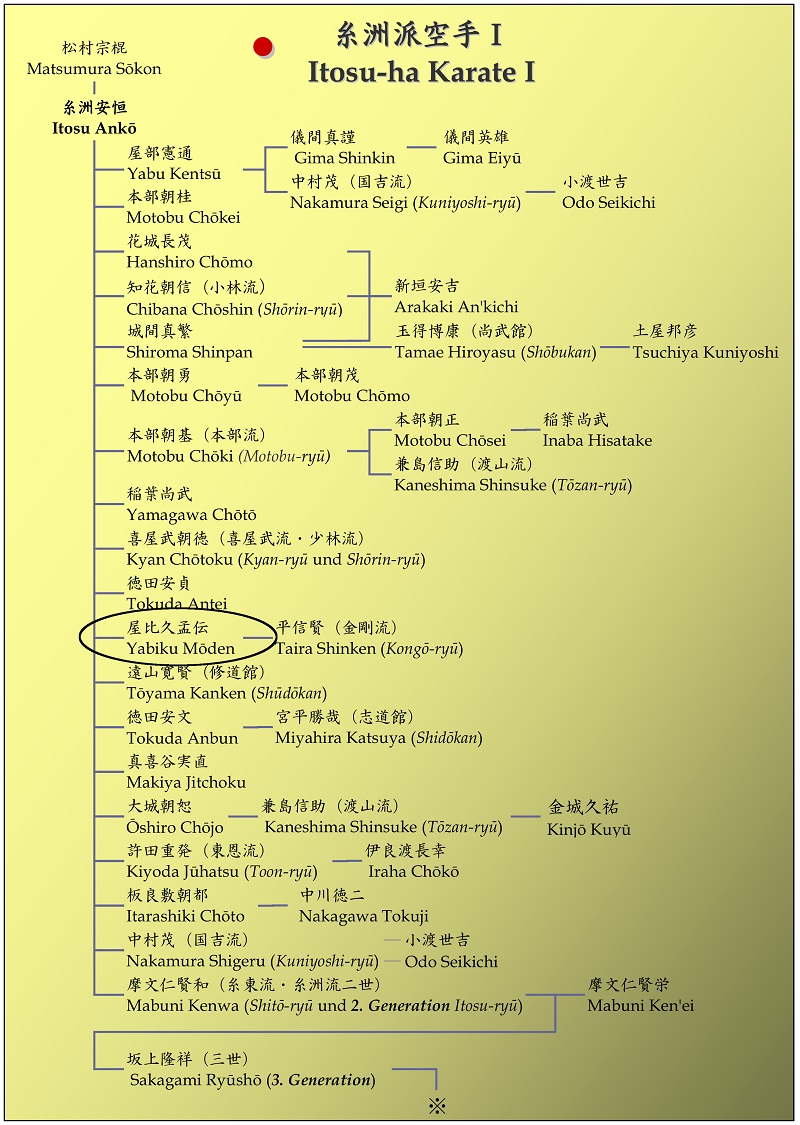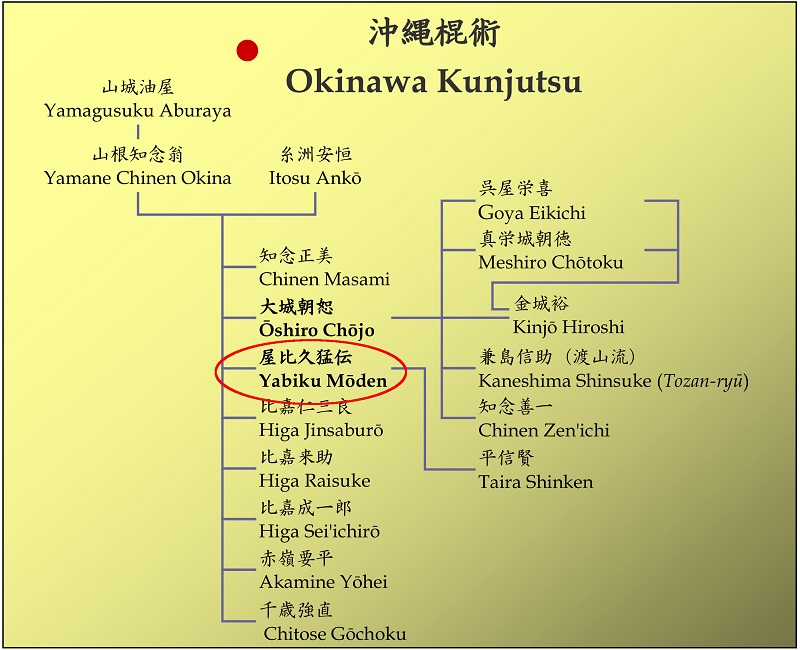 Lineages, personal relations, and official recognition were important in Japanese arts, including martial arts, for hundreds of years. That is were titles like “soke” come from, which was used by schools of tea ceremony, theater and the like.
Lineages, personal relations, and official recognition were important in Japanese arts, including martial arts, for hundreds of years. That is were titles like “soke” come from, which was used by schools of tea ceremony, theater and the like.
The importance of lineages existed in old Ryukyu, too. Yet it was mostly related to family registers. Preparing genealogies was mandatory for Ryukyuans since the establishment of the “Office of Genealogy” in the end of the 17th century. Soon possessing and cultivating a lineage (keimochi) came to be one of the most important things within the kingdom, decisive for jobs in civil service, speed of promotion intervals etc. The right to establish a genealogy in old Ryukyu could also be bought by means of “generous monetary donations” to the royal government, or were granted for special services.
Anyway, martial arts lineages in Okinawa became only important some decades following the “abolition of Ryukyu” and the establishment of Okinawa prefecture.
Today every martial arts school of Okinawa has its own lineage. It is a matter of great importance and pride. But because it is a comparatively new tradition, tracing back personal relations to Ryukyu kingdom times is often possible only by indirect deduction from the few late 19th and early 20th century accounts.

Part of lineage studies, an interesting and difficult field (translated from Bugei Ryuha Daijiten, 1978).

Part of lineage studies, an interesting and difficult field (translated from Bugei Ryuha Daijiten, 1978).
© 2015, Andreas Quast. All rights reserved.
